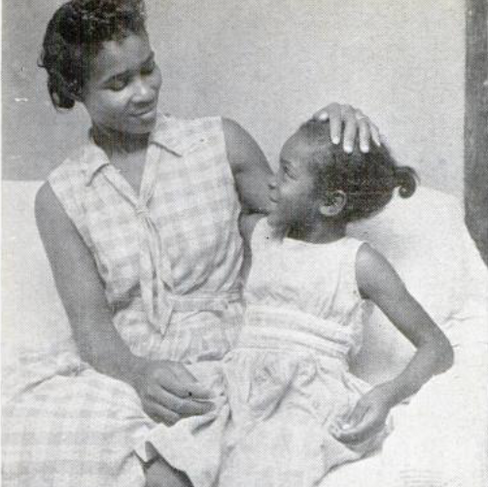Deloris Jean York
- Ninfa O. Barnard
- Apr 2
- 3 min read
On September 7 1960, with the support of her parents, her community and the NAACP, six year old Deloris Jean York became the first African American student to integrate a Dollarway Elementary School in Pine Bluff, Arkansas.

Image Credit: Ebony Magazine
On September 7, 1960, at just six years old, Deloris Jean York became the first African American student to integrate a Dollarway Elementary School in Pine Bluff, Arkansas. In minimum compliance with a 1959 Brown v. Board of Education ruling to desegregate schools, Dollarway school district officials hand-picked York, the daughter of a Negro millhand, to enter the first grade of the all-white Dollarway public school. The board reasoned that “First-graders do not have prejudices and fixed ideas concerning traditions to the extent that older students have.” Conversely, Governor Orval Faubus stated that by integrating Dollarway, there would be “a strong possibility of trouble.”
During the spring, months before York integrated Dollarway Elementary School, African American parents who tried to register their children were indeed met with trouble in the form of violence as White Dollarway residents beat up a 75-year-old Baptist deacon who attempted to register his grandchild. African Americans who attended school board meetings were stoned and some White Pine Bluff residents even stated that none of the three first graders slated to integrate Dollarway Elementary School on September 7 would live to see the inside of the school building.
After these acts of violence and threats from White citizens, the school board decided that six-year-old Delores Jean York would be the only student to integrate the Dollarway Elementary School. Delores's parents, thirty-two-year-old John D. York, who recently lost his $40 a week laborer’s job because of his daughter’s imminent integration of the Dollarway school district, and his wife twenty-six-year-old Anetha, who now supported her family of eight with a maid job at Davis Hospital were scared but determined. York, who received a fourth-grade education at the England, Arkansas plantation he was raised on, was determined that his six children should have the best.
According to an interview with Ebony magazine, who followed the family in 1960 as they prepared for Delores' big day, York felt that “education was the difference between his wife’s “maid work” at the hospital and the nurse that Delores says she will be when she finishes nursing school. Education will keep his sons from the types of jobs the father is relegated to, where the foreman lays hands on the black men. Education, York feels, will make his children “somebody,” and will help each of them come as close to their dreams as possible. And that is why the mob can not touch him, why nothing must stand in Delores's way.” Her mother, who was fearful at first that she might be physically harmed, decided that more significant harm would come from Delores not going to school.
So the morning of her big day, Delores Jean sang as she served herself a breakfast of bologna, toast, and applesauce, played outside, talked to the family milk cow Suzy and her calf Lulu, and put on the new purple dress her neighbor had pooled together to get her. Her mother combed her hair and tied her braids in a pink ribbon. York, Delores, and her aunt Irene McKinney loaded into their secondhand 1952 GMC pickup and headed to Dollarway Elementary School, which was surrounded by news reporters, law officers, and several carloads of white citizens.
At eight thirty-five after waiting outside for any sight of Delores Jean and her family, the school board president Lee Parham came out of the school to report that Delores Jean York had just become the first African American student to enter a previously all-white school in Jefferson County.
Anticipating the violence that might occur York’s NAACP attorney George Howard, had arranged for Delores Jean to enter the school from the rear which was not visible from Highway 65. The absence of violence was also credited to Governor Faubus, who told the Citizen’s Councilmen to “let the child enter in peace lest the courts be angered and cause widespread integration.” A news reporter also said, “Men have to be awfully low to attack a six-year-old.” In any case, two weeks later as her mother tucked her into bed, Delores Jean, still a happy child, had nothing negative to report about her treatment at school.
Sources:
Written by: Ninfa O. Barnard











Comments